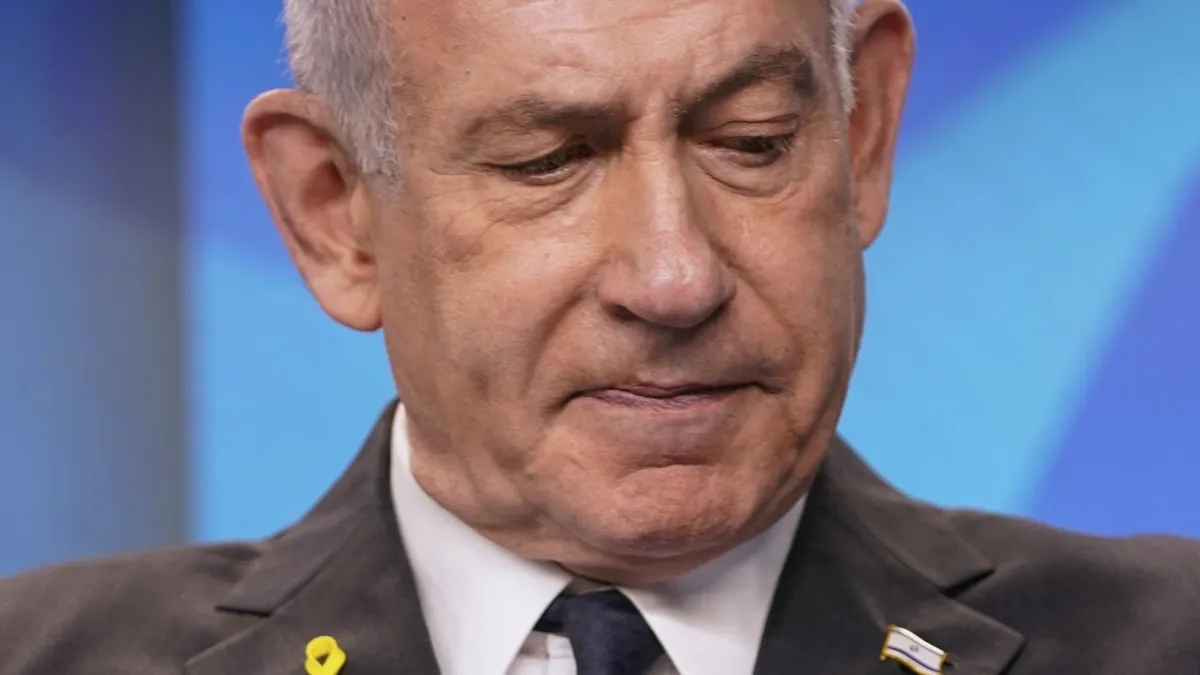
In light of the escalating conflict in the Gaza Strip, France and Saudi Arabia are striving to leverage the current gathering of world leaders at the United Nations General Assembly to instill new urgency into the pursuit of a two-state solution for the Israeli-Palestinian conflict. This initiative includes proposing a fresh roadmap aimed at achieving Palestinian statehood in territories seized by Israel during the 1967 Mideast war, as well as efforts by several Western nations to join a global consensus recognizing a Palestinian state prior to its formal establishment.
On a significant note, Britain, Canada, and Australia officially recognized Palestinian statehood on Sunday, bringing the total to nearly 150 countries that have already done so. France is anticipated to announce its recognition during this week’s General Assembly sessions. However, the push for a two-state solution encounters significant challenges, particularly from the United States and Israel. The U.S. has barred Palestinian officials from participating in the General Assembly, while Israeli Prime Minister Benjamin Netanyahu, staunchly opposed to Palestinian statehood, has threatened unilateral actions, including the potential annexation of portions of the West Bank, which would further hinder Palestinian aspirations for independence.
The vision of a Palestinian state encompassing East Jerusalem, the West Bank, and Gaza has historically been viewed as the sole viable resolution to the conflict, which predates the recent escalation initiated by Hamas’ attack on October 7, 2023. Advocates argue that a two-state solution would establish Israel as a democratic nation with a Jewish majority, while the alternative—maintaining the status quo—would perpetuate a system where Jewish Israelis enjoy full rights while Palestinians live under varying degrees of Israeli control, which major human rights organizations argue amounts to apartheid.
U.N. Secretary-General António Guterres emphasized the urgency of a two-state solution, declaring, “Israel must understand that the one state solution, with the subjugation of the Palestinian people without rights — that is absolutely intolerable. Without a two-state solution, there will be no peace in the Middle East.” Unfortunately, peace talks initiated in the early 1990s have consistently stalled due to violence and the expansion of Israeli settlements aimed at obstructing the establishment of a Palestinian state.
Since Netanyahu's return to power in 2009, substantive negotiations have been non-existent. Israel's annexation of East Jerusalem and its promotion of the growth of Jewish settlements in Palestinian neighborhoods contribute to the ongoing crisis. The occupied West Bank houses over 500,000 Israeli settlers and approximately 3 million Palestinians living under military rule, with the Palestinian Authority exercising limited autonomy in fragmented enclaves.
In Gaza, Israel’s military response has resulted in tens of thousands of Palestinian deaths, the displacement of around 90% of the 2 million population, and the creation of uninhabitable conditions that have pushed parts of the region into famine. The risk of a new offensive threatens the existence of the largest Palestinian city, further exacerbating the humanitarian crisis.
In a bid to address the dire situation, France and Saudi Arabia have proposed a phased plan aimed at concluding the conflict. This plan envisions a demilitarized Palestinian state governed by the Palestinian Authority with international support. Key components of the plan include an immediate cessation of hostilities in Gaza, the return of all hostages, and a complete withdrawal of Israeli forces. Additionally, Hamas would be required to transfer power to an independent committee under the Palestinian Authority’s oversight and disarm, a condition it has yet to fulfill.
The international community would play a crucial role in rebuilding Gaza and assisting the Palestinian Authority in governance, potentially involving the deployment of foreign peacekeepers. This plan also anticipates regional peace and the normalization of ties between Saudi Arabia and Israel.
Despite the support for the French-Saudi initiative, the United States and Israel have expressed stark opposition, claiming that recognizing a Palestinian state would reward Hamas and complicate efforts to reach a ceasefire and secure the release of hostages. Ceasefire negotiations have faltered, particularly after Israel targeted Hamas negotiators in Qatar, a key mediator, on September 9. The U.S. had previously disengaged from negotiations, blaming Hamas for the breakdown, while Israel unilaterally ended a prior ceasefire in March.
Netanyahu views international recognition of Palestinian statehood as a direct threat to Israel, warning that any unilateral actions against Israel would provoke corresponding responses. His government, along with far-right coalition partners, has long sought to annex significant portions of the West Bank, a move that would render the establishment of a viable Palestinian state nearly impossible.
The French-Saudi plan notably sidesteps some of the most contentious issues in the conflict, including final borders, the status of Israeli settlements, the return of Palestinian refugees, security arrangements, the status of Jerusalem, and the recognition of Israel as a Jewish state. Furthermore, it heavily relies on the Palestinian Authority, whose leadership is widely criticized by many Palestinians for perceived corruption and autocracy. The plan proposes holding Palestinian elections within a year, yet President Mahmoud Abbas has previously delayed votes when his party risked losing, often attributing the delays to Israeli restrictions.
Hamas, which won the last national elections in 2006, would be excluded from the political process unless it renounces its weapons and acknowledges Israel. Consequently, the plan risks ending up as yet another entry in the long list of failed Middle East accords, leaving Israel in control of the land from the Jordan River to the Mediterranean Sea, while millions of Palestinians remain deprived of basic rights.